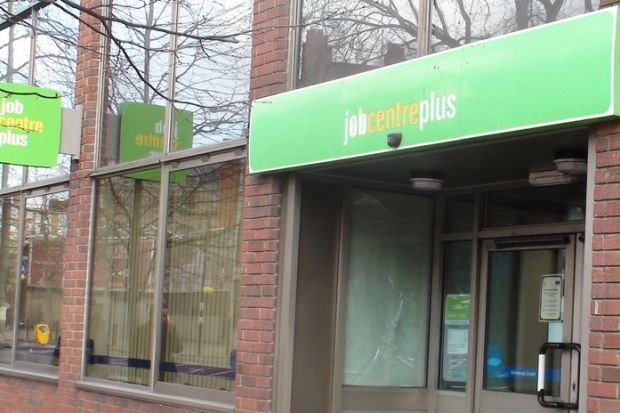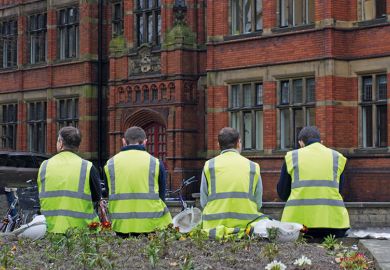As I left my graduation ceremony 22 years ago, I was full of optimism. I may have been heading home to one of the UK’s most socially deprived areas, but my ears were still ringing with my vice-chancellor’s assurance that the letters “BA (Hons)” would open doors for me. I felt sure that the life of a middle-class professional awaited.
But despite going on to earn two master’s degrees, a PhD and a Higher Education Academy fellowship, I am still waiting for those doors to open. And I am not alone. With their student overdrafts maxed out and graduate internships snapped up by better-connected peers, many fellow working-class graduates are also forced to return to areas that appear unable to offer the kinds of graduate lifestyles promised by university prospectuses.
I set my heart on an academic career, but my opportunities have been limited to a few very short-term lecturing posts; I now find myself claiming unemployment benefits back in my native Knowsley, in Merseyside, as my teaching, research and writing skills slowly rust.
A significant problem is that local authorities such as mine refuse to believe that people like me exist. Nearly all support at the local Job Centre is aimed at those without qualifications or work experience: everyone is herded into mandatory “one-size-fits-all” back-to-work schemes overseen by those without the expertise to support people with any form of academic qualification. Politicians should hardly wonder why social mobility in the UK is going backwards when graduates like me are required to apply for so-called “survival jobs” in supermarket call centres or face losing their benefits; about 60,000 graduates were in “non-professional” jobs six months after leaving university in 2015, according to the Higher Education Statistics Agency.
Nor are universities much help in this regard. They are keen to promote diversity and equality in their admissions, and do offer some career support while undergraduates remain on campus. Yet nearly all of them fail to consider what happens when their students return to places such as Knowsley.
The manager of a local government-funded employment support resource once told me that graduates seeking help should “take their degree off their CV”. A second piece of advice he gave me was, in effect, to “get on my bike”. But to relocate you need a certain level of finance to afford a landlord’s deposit, travel and basic subsistence – which, in true catch-22 style, is only obtainable from decently paid work.
Unsurprisingly, the same middle manager failed to consider what would happen if every graduate took his advice and left the area. Knowsley is already on a path towards becoming a graduate-free zone; last year, the apprenticeship-obsessed borough became the first UK local authority to stop offering A levels in its schools.
Acknowledging the existence of large numbers of out-of-work graduates in marginalised communities is not on politicians’ agendas. Doing so would force them to confront the cold realities of inequality and marginalisation; instead, they prefer to pathologise unemployment, blaming it on work-shy millennials.
However, if graduates in socially disadvantaged areas are to stand any chance in the professional labour market, two issues require attention. First, local councils in deprived areas must make much greater efforts to acknowledge and nurture those individuals in their midst who have put their faith, time and money into the education system.
Second, politicians should think about what they are doing to tackle the more complex national issue of social mobility. Graduates stuck in areas of deprivation have become the epitome of what it is like to be a victim of exclusion within exclusion. It is all very well for those Knowsley-raised graduates who manage somehow to move elsewhere, but it is senseless for politicians to suggest that the solution to urban deprivation is for more people from poor communities to go to university when such communities make no use of the graduates that they produce.
Ministers and councillors complain about the lack of role models in such communities, and universities work very hard to widen participation from such places. But everyone is ignoring the expensively educated graduates who could help to kickstart a renaissance in these neglected urban areas.
Robert Hesketh’s research focuses on gang culture and urban areas. He has previously taught at Liverpool John Moores University and Edge Hill University.
POSTSCRIPT:
Print headline: Higher road to nowhere
Register to continue
Why register?
- Registration is free and only takes a moment
- Once registered, you can read 3 articles a month
- Sign up for our newsletter
Subscribe
Or subscribe for unlimited access to:
- Unlimited access to news, views, insights & reviews
- Digital editions
- Digital access to THE’s university and college rankings analysis
Already registered or a current subscriber?




